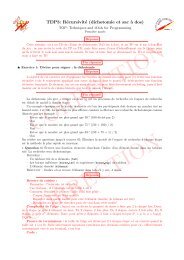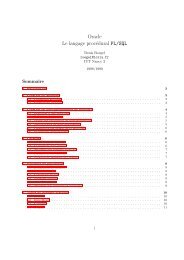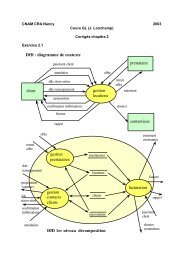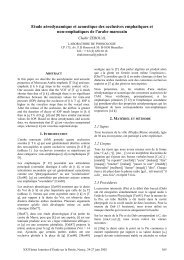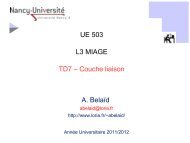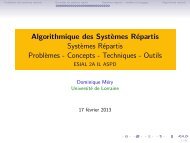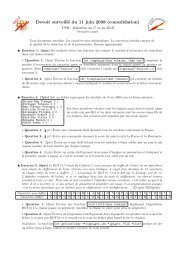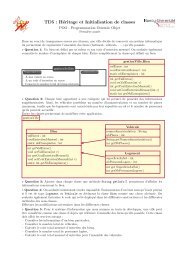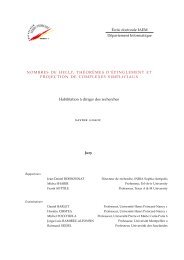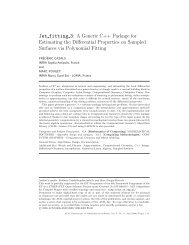Logical Analysis and Verification of Cryptographic Protocols - Loria
Logical Analysis and Verification of Cryptographic Protocols - Loria
Logical Analysis and Verification of Cryptographic Protocols - Loria
Create successful ePaper yourself
Turn your PDF publications into a flip-book with our unique Google optimized e-Paper software.
134 CHAPTER 5. SATURATED DEDUCTION SYSTEMS<br />
modified constraint system C is transformed into<br />
(Cα, (E ⊲ y)y∈lx\{x}, E ⊲ x, E ∪ {x} ⊲ t, C ′ β )σ<br />
= Cασ, (Eσ ⊲ yσ)y∈lx\{x}, Eσ ⊲ x, Eσ ∪ {x} ⊲ tσ, C ′ β σ<br />
≡ Cασ, (Eσ ⊲ yσ)y∈lx\{x}, Eσ ⊲ x, Eσ ⊲ tσ, Cβσ<br />
≡ Cασ, (Eσ ⊲ yσ)y∈lx\{x}, Eσ ⊲ tσ, Cβσ<br />
where the first ≡ is by Lemma 9, <strong>and</strong> the second one by Lemma 10.<br />
Thus the resulting system is equivalent for solutions to one in which<br />
lx ⊆ V ar(l1, . . . , ln). We can then apply the same reasoning as above.<br />
�<br />
We may now conclude by applying the previous results <strong>and</strong> again König’s<br />
Lemma.<br />
Theorem 12 Let I0 = 〈F, L0, H〉 be a deduction system such that the saturation <strong>of</strong> L0<br />
terminates , <strong>and</strong> the resulting deduction system is contracting. Then the I0-reachability<br />
problem is decidable.<br />
PROOF.<br />
It suffices to prove that the application <strong>of</strong> rules <strong>of</strong> Fig. 5.3 terminates. Assume<br />
there exists a modified I ′ -constraint system C <strong>and</strong> an infinite sequence <strong>of</strong><br />
transformations starting from C. Let C1, . . . , Cn, . . . be the resulting sequence <strong>of</strong><br />
modified constraint systems. By Lemma 50, at each step nbv(Ci) ≥ nbv(Ci+1) <strong>and</strong><br />
if there is equality, then the substitution applied on Ci is the identity (does not instantiate<br />
the variables <strong>of</strong> C). Since we must have a positive number <strong>of</strong> variables,<br />
there is only a finite number <strong>of</strong> steps where the substitution is not the identity.<br />
Let Cn be the last obtained modified constraint system with nbv(Cn−1) > nbv(Cn).<br />
Since all subsequent transformation do not instantiate the variables <strong>of</strong> Cn <strong>and</strong> its<br />
successor, the sequence has only a finite number <strong>of</strong> different modified constraint<br />
systems.<br />
Since L ′ is finite, each modified constraint system has only a finite number<br />
<strong>of</strong> successors. Thus by König Lemma there is only a finite number <strong>of</strong> different<br />
modified constraint systems. �<br />
5.6 Applications: some relevant equational theories<br />
We give here some examples <strong>of</strong> well-known equational theories where the saturation<br />
applied on the corresponding initial set <strong>of</strong> deduction rules terminates.<br />
5.6.1 Dolev-Yao theory with explicit destructors<br />
The Dolev-Yao theory with explicit destructors is the classical Dolev-Yao model<br />
with explicit destructors such as decryption <strong>and</strong> projections. This theory is<br />
given by the following set <strong>of</strong> equations:



